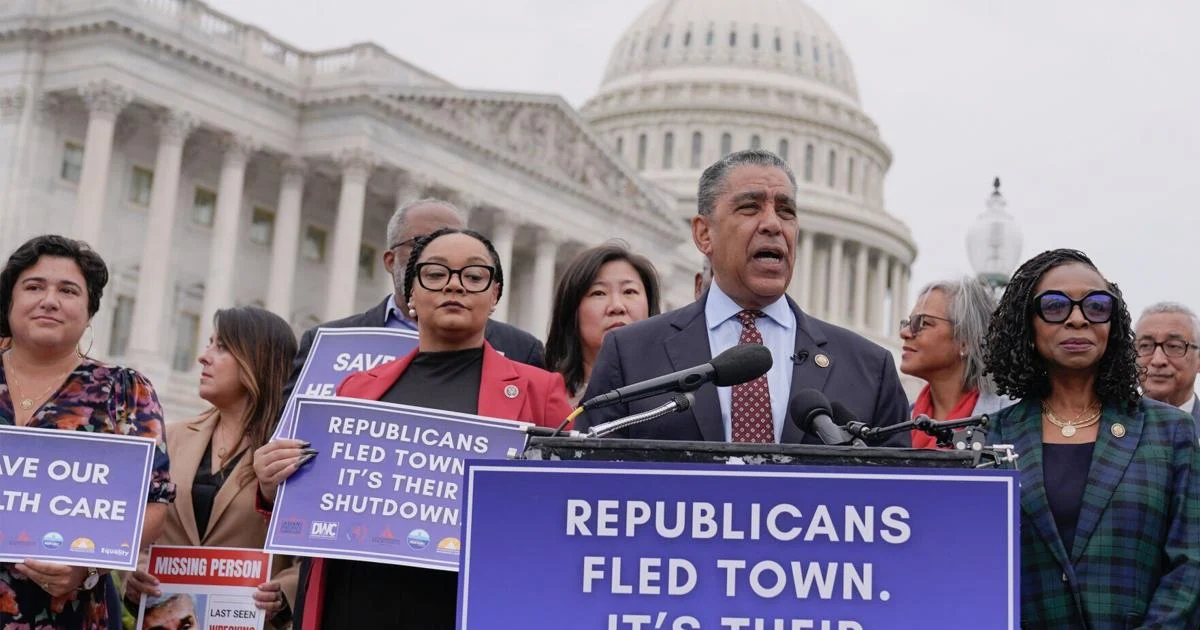
WASHINGTON — Republicans and Democrats were no closer to compromise Tuesday night, setting the stage for the federal government to run out of money at midnight and cause the first shutdown of most federal operations since 2018.
The agencies were still working out just who should come to work Wednesday and who should stay home. Officials were figuring out: What services are deemed essential and must continue even without funding? And which services could be curtailed?
In the past, the White House’s Office of Management & Budget gathered all the contingency plans and published them on its website. This time, the administration of President Donald Trump has ordered each and every agency to post its own contingency plan on its website.
Senate President Cameron Henry, R-Metairie, said he hadn’t received a formal notification regarding a federal government shutdown.
Henry said that based on prior shutdowns like the one in 2018, “We know that Social Security, military and veterans affairs will not be affected.” And most critical services like flights and air traffic control won’t be disrupted, he said.
The military will still be on duty. Armed forces retirees will still get their checks, but any changes to individual accounts will have to wait, according to the Defense Department contingency plan.
Veterans Affairs medical facilities continue operations, and veteran benefits will be processed.
Commercial flights will continue, though lines may start getting even longer if the shutdown wears on.
With two hurricanes off the U.S. coast, the staff of National Weather Service will be working even though the agency has roughly 20% fewer employees as result of Trump’s government downsizing, according to NOAA’s contingency plan.
Similarly, the Federal Emergency Management Agency workers will be on duty during the shutdown.
“That doesn’t mean the employees working at those agencies would get a timely paycheck,” Henry said, adding those employees are required to work but may not receive compensation until after the funding dispute is resolved.
The Congressional Budget Office estimated Tuesday about 750,000 of the federal government’s 2.3 million civilian employees will be furloughed and their compensation runs roughly $400 million a day.
Louisiana has 19,486 civilian employees in Louisiana, mostly working for agencies in and around New Orleans and Baton Rouge.
The 1.26 million Louisiana seniors who receive Medicare and 1.6 million people on Medicaid state will be unaffected provided the shutdown is over in about three months, according to contingency plans.
Pell Grants and Federal Direct Student Loans and other education grants already have been disseminated and should not be impacted. But, if the shutdown lasts a long time, the money available for college students may lapse.
“Data or research may not be accessible via government sites,” said Louisiana Board of Regents spokesperson Chris Yandle. “There would be disruptions to administrative services at federal agencies like the Department of Education.”
“The effects to public higher education could become more pronounced the longer the shutdown lasts,” he added.
The Small Business Administration will still process disaster loans, but new business loans will have to wait.
Some essential services like Medicaid will continue even with the federal government shutdown, said state Rep. Jack McFarland, R-Jonesboro, who chairs the Louisiana Legislature’s House budget committee.
McFarland said the availability of funding for other federal programs administered by Louisiana, such as food stamps, will depend on how much money had previously been allocated and remains in agency reserves.
The roughly 95,000 Louisiana residents who rely Special Supplemental Nutrition Program for Women, Infants, and Children, better known as WIC, and 850,000 Louisiana residents who receive Supplemental Nutrition Assistance Program, also known as food stamps also won’t see any disruptions unless the shutdown continues for a few months.
Services that have sources of revenue independent of the discretionary funding that is at issue in Congress. Mail will be delivered because the Postal Service gets its money from stamps and fees. Social Security benefits will be paid because the money comes directly from workers.
Passports, which applicants must pay for, will continue to be processed. Because appropriations included in the recently passed in the One Big Beautiful Bill Act are exempted, immigration courts and border patrols will continue as will efforts to deport immigrants.
But planned visits by foreign dignitaries generally won’t be allowed.
Flood insurance a major question
Perhaps the biggest impact on Louisiana residents is the end of the National Flood Insurance Program, at least for the time being.
NFIP isn’t really a part of the budget fracas between Democrats and Republicans. A few years ago, the periodic renewal of flood insurance coincided with the funding deadline and got attached to the continuing resolution that kept government open.
Now, the expiration of flood insurance is caught up with the shutdown.
Louisiana Insurance Commissioner Tim Temple said Tuesday that his staff already have lined up media appearances for the next few days and he expects flood insurance to be the top topic.
Flood insurance is federal program — not administered by the state.
Temple said Louisiana has about 418,000 NFIP policies worth about $275 million in force now. Private insurers write about $29 million in flood policies and they will not be affected.
He understands the anxiousness.
“We have high frequency, and we have high severity on flood claims compared to the national averages,” Temple said. “This isn’t their vacation homes in South Louisiana. These are working men and women that need to be able to live where they are living.”
Temple is in Washington to meet with the FEMA Review Council, ironically about flood insurance — but more on financial stability of the National Flood Insurance Program than the expiration of flood insurance.
Temple said he will be telling Louisiana policyholders that, as long as their personal flood insurance policies are in effect, then damage claims will be honored. And those claims already filed will be paid.
But no new NFIP policies will be sold or renewed until Congress extends the program.
Because many banks require homeowners to purchase flood insurance as a condition of the mortgage, Temple said he’s trying to determine what the shutdown would mean to people closing on their houses, inasmuch as the policies can’t be sold during this time.



